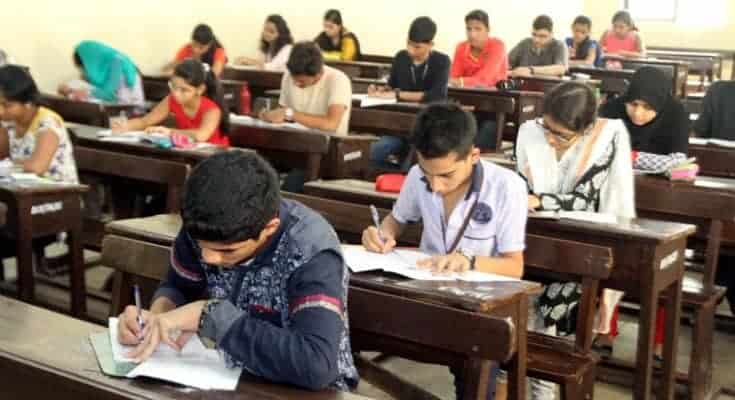Attendance criteria have never been one of the more appealing factors for college students, and Delhi University students are no strangers to the frustration this causes.
Delhi University mandates a minimum of 67% attendance for students to be eligible to appear for their semester exams. Adding to that, DU sets aside five per cent marks that are only awarded to students according to their attendance in a particular semester.
However, recently, it has been observed that colleges like Hansraj College have mailed cautionary letters to the homes of most attendance defaulters. In copies obtained by DU Beat, it was seen these letters consisted of the incorrect letterhead and grammatical errors. This makes one question the veracity of these letters that most students feel threatened by. Additionally, these letters are addressed to parents, and not students. This also makes one question the ethics of this, considering the fact that all students are adults and are held personally liable for all their actions (pertaining to activities in college) and usually, such an action is considered an invasion of one’s privacy.
It is a well-known fact that the attendance guidelines are used to incentivise students to maintain their attendance. Despite this, large numbers of students continuously fail to fulfil even the minimum requirement. This is because of a variety of reasons.
Many students live off campus, that adds to the travel time for most students who might not find the commute ‘worth it’. Classes are usually unevenly dispersed over slots from 8:30 a.m. to 5:30 p.m., sometimes with 3-4 hour gaps in between. This is mostly due to logistical issues, pertaining to paucity of lecture halls or teachers. The advertisement section of the University of Delhi (DU) website stands proof of the number of vacancies in DU currently, right in the middle of the academic year.
Another reason for the same is extracurricular activities that occur during college hours. These are extremely important to cultivate your talents, increase your skill set, add to your CV, and develop your overall personality. Most colleges offer attendance benefits but these are only taken into consideration in case if students represent the college in competitions. Some colleges like Gargi College have different attendance requirements (34%) for students involved in cultural societies, while others don’t. This lack of transparency and these arbitrary changes in policy only add to students’ frustration.
Students working for society fests are often denied attendance benefits. Atishay Jain, a second-year student at Shri Ram College of Commerce (SRCC) said, “I spent days preparing for our CMS (Computers and Mathematics Society) Fest, and only received benefits for 1 of the actual 3 days of the Fest. I think it becomes a trade-off between managing co-curricular and managing attendance. I choose the latter.” Adding to this, it is up to the discretion of teachers whether or not they want to consider benefits. Many teachers of SRCC refuse to do so.
Mostly, it is observed that the classes don’t offer any intrinsic knowledge to students, with monotonous course material and teaching methods. Last minute lecture cancellations, without substitutes, are also a proponent of apathy and absenteeism among students. Some colleges also fail to provide students with minimum lecture hours, as a recent Delhi High Court case highlights. In Jule 2018, the Delhi High Court slammed Delhi University for detaining a large number of law students on the ground of “lack of attendance” despite the varsity’s failure to conduct the requisite number of classes for the sixth and final semester from January to May. The judgment was passed on a batch of petitions filed by final-year law students of DU challenging the arbitrary manner in which students were detained by the university this year by citing lack of attendance.
It is another well-known fact that for most colleges, this debarring isn’t stringently followed through by the authorities themselves. The administration makes attendance defaulters sign an undertaking, a promissory note guaranteeing fulfilment of the required criteria in the immediately succeeding semester.
These factors add to students’ frustration and uncertainty, with growing apprehension to mandatory attendance requirements. This also makes one question the quality of lectures and tactics (or lack thereof) employed by colleges to make their students attend classes.
Feature Image Credits: Hans India
Nikita Bhatia





Comments are closed.